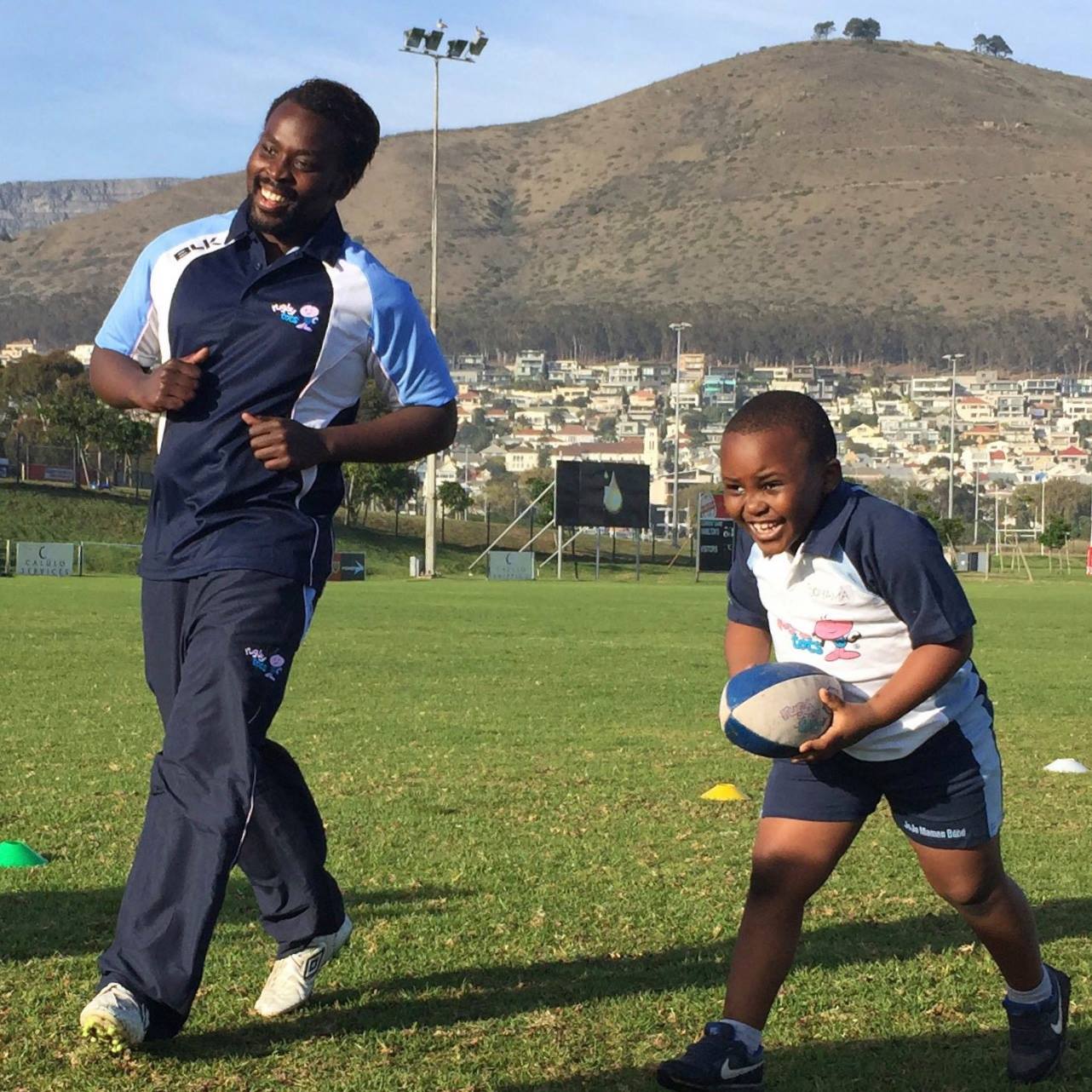
Many of our kids simply don’t have fun playing sports anymore. What’s the plan to reverse this you may ask?
At our local coffee shop Merkava in Somerset West, I ran into a parent I know from my boy’s old pre-school. After exchanging small talk about Eskom or the lack of Eskom and the next Rugby World Cup, he mentioned that he’d hired a local rugby ex-professional player to work with his son. He was now receiving 1-on-1 coaching training sessions with his hopes that he would compete at the highest level being the SPRINGBOKS! I choked back on my coffee. Did I mention his son just turned 8?
Is this the world of kids’ sports today? Surely this is an extreme example of vicarious living of this parent’s past failings being relived through his son.
Don’t get me wrong, I advertise our Rugbytots holiday camps but there is big a difference between this and witnessing overzealous parents, at the side of a rugby/soccer or hockey pitch. I have several image galleries in my mind of parents screaming at the referees whilst cheering on their children.
We even hear about Western Province matric school learners being courted by overseas universities, maybe creating expectations that our 18-year-old could hope to meet. On the weekends, we South Africans not only marinade our chops on the braai but marinade in our culture that glorifies winning.
According to an Institute for Study of Youth Sports in the Michigan State of America, a child’s number one reason for playing sports is to… “have fun!” Yet by the time children turn 13 years old, apparently 70% drop out of the team sports they trained so hard to be a part of when they were in primary school.
The main reason? You guessed it … “because I was not having fun” is the most common answer for both boys and girls is. That’s been qualified by a comprehensive study by the Women’s Sports Foundation (WSF) which advances the lives of girls and women through sport.
Isn’t this a serious problem?
According to the WSF study, when a child stops playing organised sports, he or she loses more than the chance to play a game. Our child’s athletic participation is associated with higher levels of family satisfaction and improved physical and emotional health, academic achievement, and quality of life.
And this is to say nothing of the other benefits of sports, especially RUGBY, which help our children to learn about grit, sportsmanship, humility and fairness, all whilst developing a substance modern day adults seem to have less and less of, self-control. This is a lifelong love of movement and an openness to being coachable. That’s a heck of a lot to miss out on.
The crucial question:
What is going on with teen sports?
How can we fix it?
WHAT’S THE END??
Understanding the forces that have taken the (excuse the pun to our competitors) “play” out of “Playball,” we can help solve the issue.
The culprits…
OVERLY INVOLVED OLD-SCHOOL LEAVERS WHO ARE PARENTS.
Only two percent of high school sports athletes receive university bursaries. That doesn’t stop an estimated 60% of parents from believing their child has a chance to play at the uni level. Therein lies part of the problem.
This is part of the “adultification” of teen sports. It’s the introduction of adult values into kids’ games. When I grew up, it was children competing against children. Now, more often than not, it’s adults/parents/ old boys societies competing against other adults/parents/ old boys societies through their children.
This causes myriad problems. Dan Saferstein, Ph.D., a sports psychologist and author of Win or Lose: A Guide to Sports Parenting. “If you get a high-achieving, talented kid with a pushy, high-achieving parent, it can work out,” says Saferstein. “The kid can somehow rise to the expectations of the parent, and the kid may even share some of that drive himself.
What can be tragic, though, is when you get a more driven, consumed parent with a kid who somehow, in the parent’s eyes, just doesn’t measure up.” The result, says Saferstein, extends further than sports: “The kid feels like a failure.”
Parents often misperceive their child’s natural talent. “There’s a myth in youth sports that if you work hard enough, you can achieve anything,” he says. “It’s not true.”
But that can be hard for a parent to realize.
So, instead, the parent throws as much as they can at the situation while pressuring his or her kid, ignoring the fact that the child might have a natural ceiling.
This entry was posted on 2nd October 2023.





















